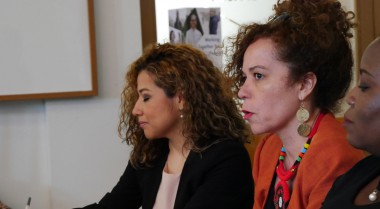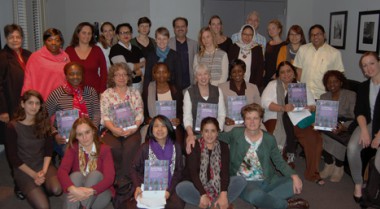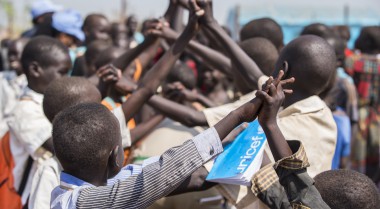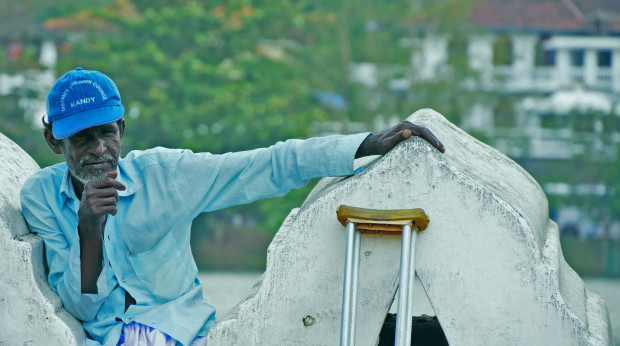
GPPAC: Women Are Paramount to Peacebuilding
Although women have always been involved in peace and security, origins of the Women, Peace and Security (WPS) framework can be traced back to the adoption of the landmark UN Security Council Resolution 1325(S/RES/1325), adopted in October 2000. This was the first time that the Security Council explicitly addressed the complex, unique, and disproportionate impact of conflict on women and girls. Furthermore, it stressed that in order for peace processes to be successful, they must: include women at the decision-making level; include gender-sensitive provisions; and address the specific challenges that affect women during and post-conflict.
Seven subsequent resolutions (UNSCR 1820, 1888, 1889, 1960, 2106, 2122 and 2242) create the foundation of the WPS Agenda, which is rooted in the idea that sustainable and inclusive peace can only be achieved if women and girls are given space to be agents in their futures.
Even with the strong evidence suggesting that sustainable peace is contingent on women's participation, the vast majority of peace processes and agreements have failed to include women. According to UN Women's "Facts and figures: Peace Security" webpage:
- Between 1990 and 2017, only 2 per cent of mediators, 8 per cent of negotiators, and 5 per cent of witnesses and signatories in all major peace process were women.
- Only 27 per cent of peace agreements signed in 2017 included gender-sensitive provisions.
- Between 2000 and 2016, only seven per cent of peace agreements refer to procedures for implementation of gender provisions.
- Out of the 1,500 peace and political agreements adopted between 2000 and 2016, only 140 addressed women's role in implementation.
This disheartening data emphasizes that the WPS agenda is not just a commemoration of women in peace processes, but a reminder that the international community and the UN still have a long way to go in making the recommendations of Resolution 1325 a mainstreamed reality.
As a network of civil society organizations, GPPAC advocates that the diverse voices and experiences of women and men working at the local, national, regional, and global level need to be included in the dialogues and decisions around conflict prevention and peacebuilding.
Gender equality and women's participation is not siloed, but wholly integrated into GPPAC's approach. Gender inclusivity underpins all aspects of conflict prevention and peacebuilding, and GPPAC models its gender programming after this understanding. Gender Focal Points are members of GPPAC's network and work to mainstream gender in their respective regions and thematic global working groups.
For the past few years, GPPAC Gender Focal Points have participated in the annual anniversary week of Resolution 1325 held at the UN. This week brings together a range of UN officials, Member States and civil society organisations looking to advance the WPS agenda. It also features an Open Debate in the Security Council, with senior representatives briefing on WPS issues. This October, GPPAC's Gender Programme Coordinator, Maja Vitas Majstorović, led six GPPACs Gender Focal Points from a number of regional networks as the GPPAC delegation to WPS week in New York.
The week was filled with a range of events, presentations, and spaces for dialogue and networking. This included the UN Security Council Open Debate on Women, Peace, and Security, which was a historic moment of firsts. For the first time a Palestinian woman, as the civil society representative, addressed the council. She spoke candidly about the dire situation for civilians in the occupied territories of the West Bank and Gaza. The open debate continued with most member states reaffirmed the need for women's inclusion in peace processes and their commitment to increasing parity in all decision-making positions.
In addition, many fruitful side events were hosted by civil society organisations. Two, which GPPAC helped organize, directly highlighted some of the main challenges and opportunities for WPS. Co-sponsored by GPPAC, ICRtoP, and the Friedrich Ebert Stiftung (FES), Fostering inclusion to build resilient societies: How women peacebuilders prevent conflicts and atrocities on the ground, featured GPPAC gender focal points who shared insight into their context-specific situations and how the WPS agenda is implemented on the local level. Keisa- Onam Bijoue Birch, the GPPAC Gender Focal for West Africa, explained how WANEP operates an anonymous early warning system that allows local women and men to safely report situations that could escalate into violent conflict. In Palestine, Middle East Nonviolence is utilizing social media as a space for young people, especially young women, to engage in promoting nonviolence.
The other productive event was a civil society forum, The Road Towards 20 Years of Women, Peace, and Security -- Strategies for Action, hosted by the NGO Working Group on WPS. The forum allowed for open and honest dialogue about the common and persistent obstacles for civil society organizations. Some challenges included overcoming UN bureaucracy, lack of access to justice institutions, physical safety concerns, and climate change. However, conversations did not only focus on the negatives, but also brainstormed possible solutions. Some ideas included rebuilding institutions from a survivor-centered approach and utilizing MoUs (Memorandum of Understanding) to regularize information-sharing between civil society and national/regional/ international institutions. Hopefully, all the networking at the forum will allow these conversations to continue into the future.
In order to see concrete and widespread success of the WPS agenda, we have to answer a question posed throughout the week: What is women's meaningful participation? This week showed that advocating and discussing women's participation is not enough. GPPAC plans to further strengthen our regional networks, increase best practices sharing, and ensure CSO participation in the creation of guidelines for CSO engagement in order to pressure current power institutions to allow women into decision-making positions at all points and levels of peace processes.
It is paramount for women and girls to be allowed to safely and freely participate in all stages of the peace process. From planning to implementation, GPPAC is committed to making that women can openly participate and have direct influence on outcomes.



